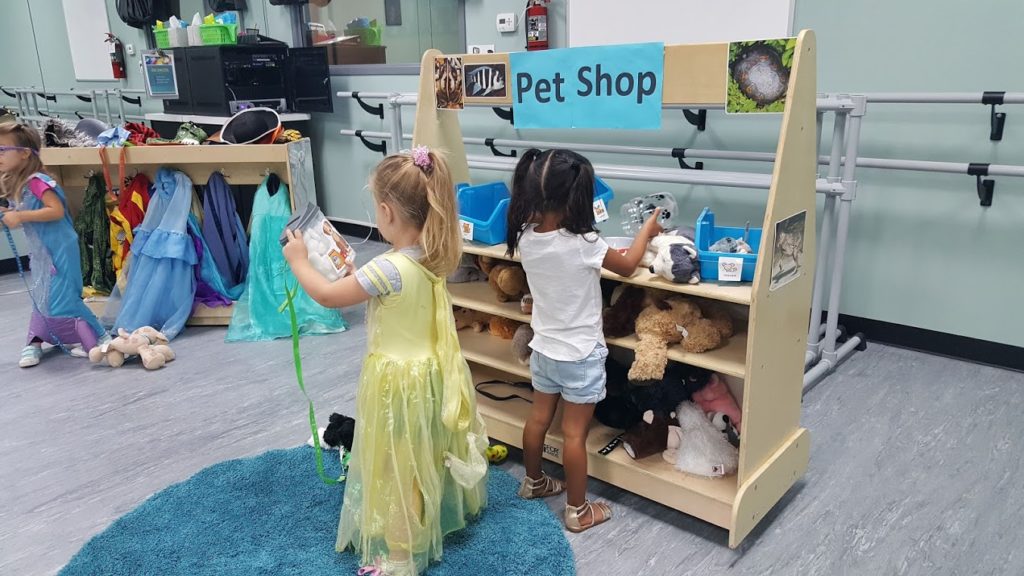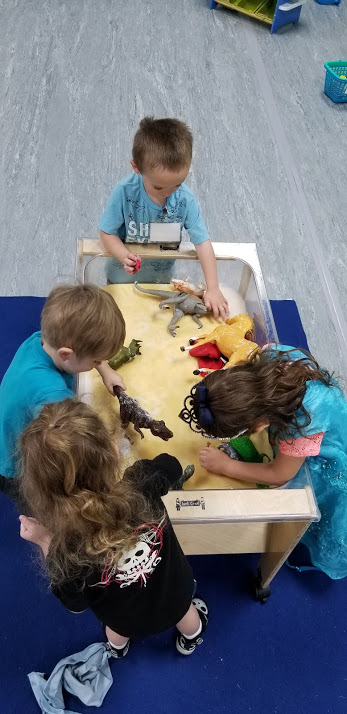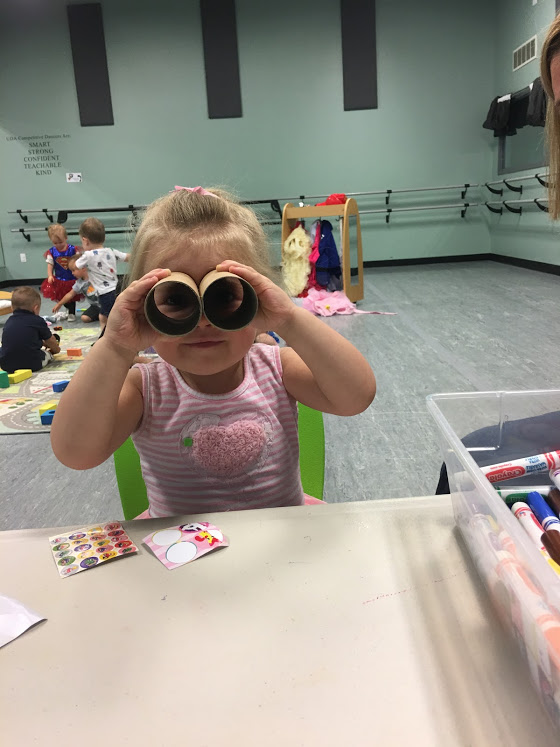Look in a preschool classroom, and you’ll practically see the imagination floating through the air. Even while doing ordinary things, children are imagining themselves as superheros and animals. Their daily tools (toothbrushes, crayons, plates, socks) become airplanes, dragons, swimming pools and more with no effort at all.
Children are naturally good at imagining, which is a good thing — because they learn their best by imagining and doing.
When your child’s preschool incorporates play-based learning into the curriculum, your child reaps countless benefits. Here are five:
Imagination and Creativity
We may not always think of it this way, but creativity is a necessary skill for survival. When the dishwasher breaks and starts flooding the basement, you have to quickly find a creative solution for capturing the water before it ruins your carpet. When your boss expects you to meet a tough deadline, you have to be creative in your time allocation. And when your preschooler asks you to be a dog with him, you have to get down on your hands and knees and bark if you want to keep seeing that adorable smile on your child’s face.
So if creativity is such an important life skill, it stands to reason that your child needs to learn to develop it as soon as possible. And pretend play is the perfect way for that to happen. When your child gets absorbed in pretend play, her imagination takes over. She can be anything, go anywhere, and have any sort of power she wants. This lets children think for themselves, keep their brains active and engaged, and build up that creativity they’ll need for their whole life.
Social Development
The world is big and scary. It’s confusing, and its rules are not immediately obvious to the under-4-foot crowd. Engaging in pretend play allows children to work out the social rules of the world in a safe space. They learn who they are and what they love, and they learn who other people are. As they pretend to be someone else (a chef, a doctor, a parent, an animal), they get the opportunity to think like someone else. What would it be like to walk in that person’s shoes? This aspect of pretend play helps preschoolers develop empathy for others.
As children engage with each other in pretend play, they learn to respect other people’s wishes and to notice when someone is having a good time or having a really awful time. They have to agree on the topic of play and negotiate throughout play as roles and rules change.
Language Skills
Did you know that pretend play is building the foundation for your child to learn to read? That’s right. Through pretend play, preschoolers learn the power of language, how to retell and reenact stories, and they build their vocabulary.
As they pretend they’re at the doctor’s office, they develop language appropriate to that location. And because they’re uninhibited through play, they try out words they may otherwise be too self-conscious to try.
Not only that, they need to ensure their meaning is understood as they act out situations. This requires sophisticated language skills that continue to develop through pretend play.
Problem Solving Skills
First, your child has to decide what to play. In that process, there will be some back-and-forth with the other children who are involved. Opinions will have to be considered, and solutions found.
Then, everyone has to decide the rules, roles, and materials for the game. And there is always some problem to figure out — a bad guy who is locking up the ponies, a tornado that is going to wipe out the town, a robber who is stealing the fruit at the grocery store. How will the children solve the problem? Sit back and watch their creative problem-solving skills whir into hilarious and ingenious action.
All of this is practice for real life, when cooperation and problem-solving skills need to be relied on each day.
Physical Development
Pretend play often turns into physical play. Children have to chase after the bad guy, climb to escape the hot lava, jump over the swamp of alligators, and more. All of this works to build their strength, while increasing their gross motor development.
Even when the pretend play doesn’t involve jumping, hopping, and running, physical skills are being developed. It takes strong fine motor skills to dress dolls, string beads, or gather items to “buy” at the store.
Bottom line: Pretend play encourages movement in all the ways your child needs for proper growth and development.
Pretend Play “Tools”
In pretend play, children don’t always use objects for their intended purpose. Sometimes, puzzle pieces become coins and toy cars become hidden treasure. Keeping a variety of items around your home will encourage your child to tap into her creativity and use them in imaginative and playful ways.
Some toys and objects to keep on hand:
- blocks
- old clothes
- old purses
- old magazines or phone books
- stuffed animals
- old sheets (good for costumes, forts, picnics, pretend meals, etc.)
- toy dishes or old dishes or utensils
- notepads and pencils
- dolls
- animal figurines
- a doll house
- cardboard boxes or tubes
- wrapping paper
Look at the world through your child’s eyes and see how everyday items can be transformed. Come see how we encourage and incorporate pretend play into our curriculum at UDA Creative Arts Preschool in Draper, Utah. Give us a call at (801) 523-5930, or contact us online to schedule a tour.



